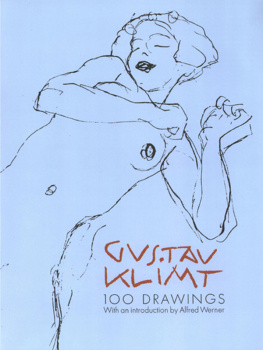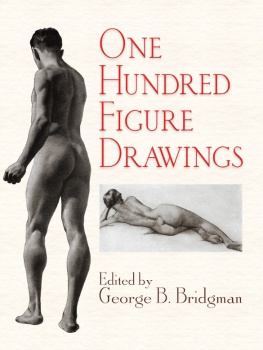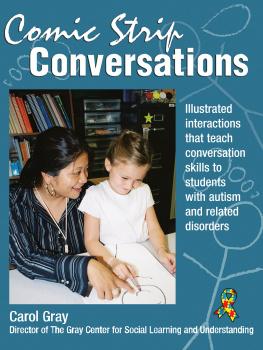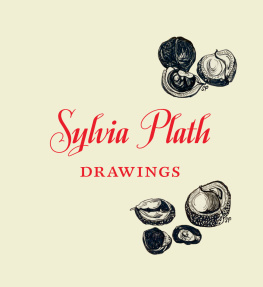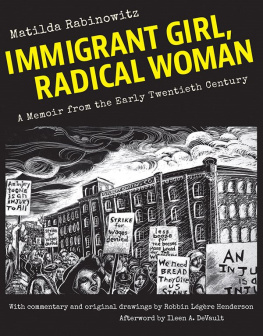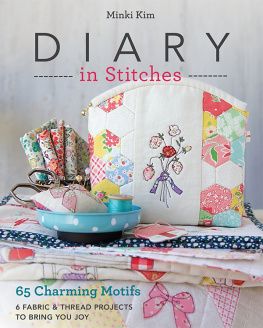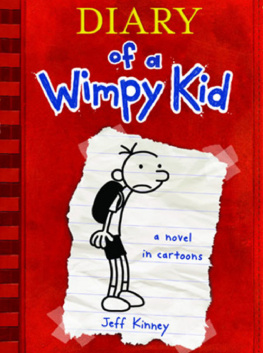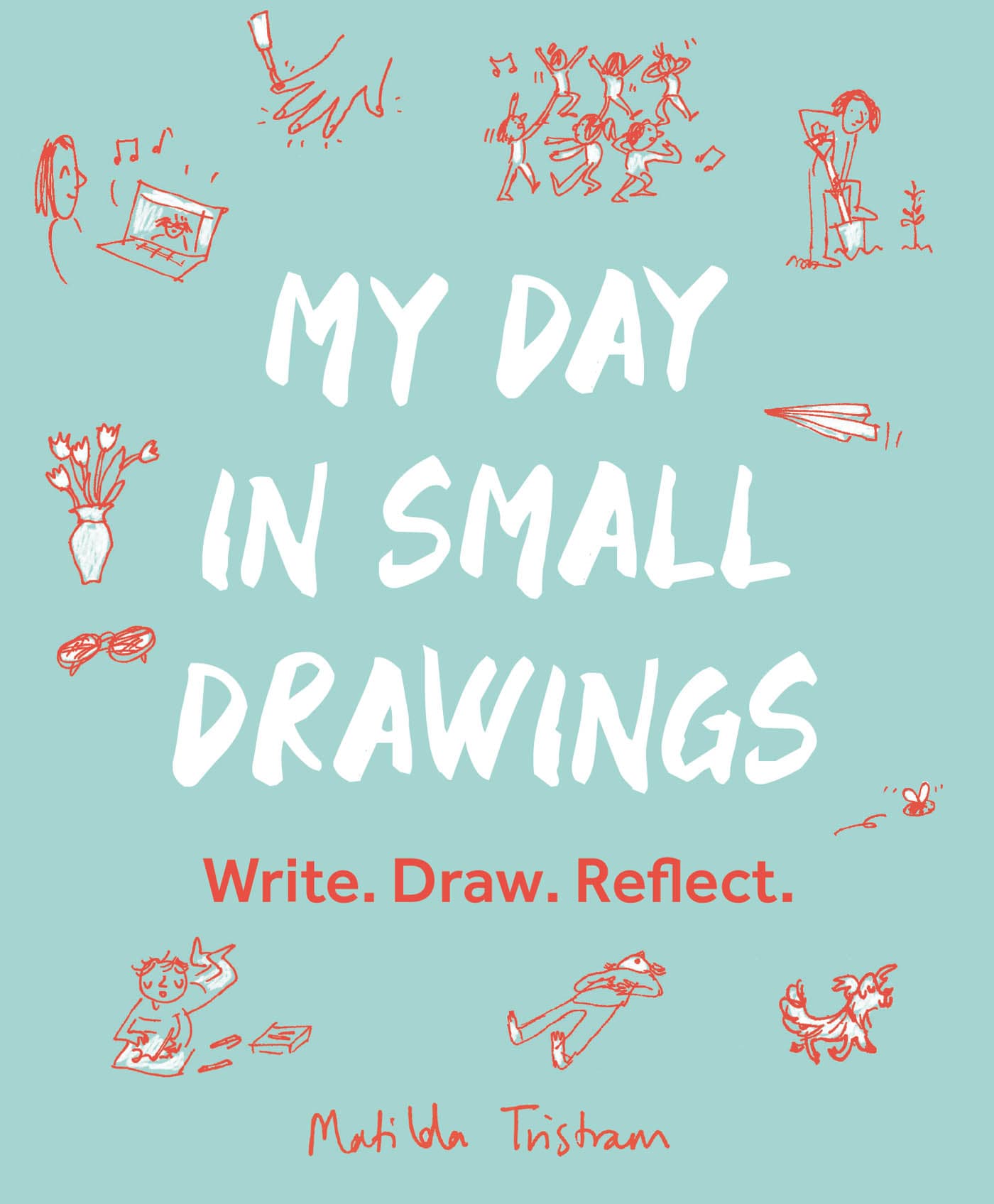My DAY
IN SMALL
DRAWINGS
Write. Draw. Reflect.
Matilda Tristram
CONTENTS
WHY COMICS?
Why write comics rather than a normal book? This is a question that comic artists are asked all the time. Comics are an incredible, unique art form. You can tell stories in any direction, leading the readers gaze across the page in any way you like left, right, up, down depending on the way you lay out your drawings. Time works differently, too, when youre reading a comic; a picture communicates meaning in an instant, and can transmit a profound sense of those thoughts and feelings that are hard to describe with words. You can break up the page however you choose, using differently sized frames to affect your narrative, or not break it up at all and tell a whole story in one image.
Text can change the meaning of an image and vice versa. Its like magic when this happens. If you draw something happy, then next to it write something sad, the essence of the whole thing is heightened. Theres irony, and you realize there is sadness in happy times. If you draw something ordinary or mundane then write something weighty next to it, suddenly those small, everyday things hold a greater significance. You can create your own visual language and tell stories in a way thats uniquely yours.
Anyone can write fantastic, impactful comics. You dont need to be brilliant at writing or drawing; you just need a pen or pencil and something to write about. This book is a way in; its about starting small, creating short narratives, and using dialogue and images to build a scene. Its about getting past the idea of writing something epic and just starting to write. Your style will develop as you go.
DIARY COMICS
I started writing diary comics and posting them online to inform people about my experience of illness and disability, caused by a cancer diagnosis during my first pregnancy (my son is fine now, and so am I).
Sharing my comics really helped me to feel less alone in that experience: other cancer patients and supportive readers got in touch to cheer me on, and I was able to let people know how I was feeling, how treatment was progressing, and what they could do to help, without having to have the same upsetting conversations over and over again. I could educate people about which symptoms to look out for. I could give healthcare workers a better understanding of what it was like to be a patient by drawing those exchanges that made me feel well cared for and treated like an equal, and the few interactions that left me feeling baffled, dehumanized or not taken seriously. I could discuss the problematic ways that cancer patients and pregnant women are spoken to and talked about. It gave me something to do during long stints in hospital. There was suspense, tension, grief, fear, and those things made for a great story, although it was actually my life!

Once you decide to keep a diary, and to pay close attention to people and things in order to write about them, it feels like youre permanently at the theatre. Fascinating and funny characters come and go the whole time; when I was in hospital, there were kind, charismatic doctors and nurses; chatty porters; and very old patients talking about their amazing lives (fudge, fags and running for the bus is the secret to longevity, apparently). You could take inspiration from anyone you know, happen to meet, or that you remember.
During the COVID pandemic, writing comics helped to pass the time when we were all locked down at home. Looking back at how we coped, at joyful times, at things that made me laugh, helps to shake off the anxiety and gloom of the past year.
Comics about ordinary life and small things can be just as moving, poignant and meaningful as comics about crises or life-changing events. Everyday moments are relatable and can grab a reader who recognizes those situations that you describe.
So, there are lots of good reasons to write diary comics: to educate and inform; for their therapeutic value; to connect with people; to kickstart conversations that you want to have; and, most importantly, because its fun.
DIARY COMICS AS A THERAPEUTIC ACTIVITY
When Im concentrating on how to describe or draw something, I stop thinking about how Im feeling. I start enjoying making artistic and narrative choices and creating something new. It also feels emotionally beneficial to put my thoughts in order and get them out on paper, to acknowledge the things that Im worried about.
At the same time, I sometimes feel annoyed by the suggestion that artists make diary comics simply because its therapeutic or cathartic. It seems reductive, as if we are just doing it to feel better, rather than creating Great Works of Art.
But artistic value and therapeutic value are not mutually exclusive. Diary comics are an incredibly rich, varied, experimental, complex, political art form that can tell us so much about people and society. And the therapeutic aspect of diary comics makes them even more valuable; when modern existence is uncertain and scary, its a bonus to be made to feel better.
THE COMICS COMMUNITY
I love the comics community. Its so great to post a strip online and receive encouraging feedback from people who have enjoyed it. Ive come across so many brilliant artists online over the past few years by engaging in this way.
I particularly love web comics because the form lends itself to work that exists for the sake of the idea, and for the sake of telling a story or connecting with a community; commerciality isnt always a concern, and thats exciting. Creating comics for fun, for yourself, gives you a certain freedom: you can be weird and experimental, or write about subjects that fall outside of the mainstream. Saying that, web comics and self-published material frequently cross over into the mainstream eventually because they are so good!
Lots of popular comics, graphic novels and animation started online, and fans helped the material reach a wider audience, and the artist to thrive.
If youre a visual artist of any kind, making comics is a great way to test your ideas. To think about structure and dialogue, and to practise visual storytelling.
JOURNALISM & MEMOIR
Comics are engaging and accessible. You can draw people in with a compelling image, with an informal tone or writing style, with your personality, or with a joke (if appropriate), then make your point when you have your readers attention.


